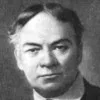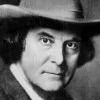I don’t believe any man ever existed without vanity, and if he did he would be an extremely uncomfortable person to have anything to do with. He would, of course, be a very good man, and we should respect him very much. He would be a very admirable man — a man to be put under a glass case and shown round as a specimen — a man to be stuck upon a pedestal and copied, like a school exercise — a man to be reverenced, but not a man to be loved, not a human brother whose hand we should care to grip. Angels may be very excellent sort of folk in their way, but we, poor mortals, in our present state, would probably find them precious slow company. Even mere good people are rather depressing.
Jerome K. Jerome (1859-1927) English writer, humorist [Jerome Klapka Jerome]
Idle Thoughts of an Idle Fellow, “On Vanity and Vanities” (1886)
(Source)
Quotations about:
egotism
Note not all quotations have been tagged, so Search may find additional quotes on this topic.
Strength of character leads us to a degenerate form of it — obstinacy. It is often very difficult in concrete case to say where the one ends and the other begins; on the other hand, it does not seem difficult to determine the difference in the abstract. Obstinacy is not a fault of the intellect; we use the term as denoting resistance to our better judgment, and that cannot be located, without involving us in a contradiction, in the intellect, which is the capacity of judgment. Obstinacy is a fault of temperament. This inflexibility of will and impatience of contradiction find their origin only in a particular kind of egotism, which sets above every other pleasure that of governing itself and others solely by its own caprice.
[Die Charakterstärke führt uns zu einer Abart derselben, dem Eigensinn. Sehr schwer ist es oft, im konkreten Falle zu sagen, wo die eine aufhört und der andere anfängt, dagegen scheint es nicht schwer, den Unterschied im Begriffe festzustellen. Eigensinn ist kein Fehler des Verstandes; wir bezeichnen damit das Widerstreben gegen bessere Einsicht, und dieses kann nicht ohne Widerspruch in den Verstand als dem Vermögen der Einsicht gesetzt werden. Der Eigensinn ist ein Fehler des Gemütes. Die Unbeugsamkeit des Willens, diese Reizbarkeit gegen fremde Einrede haben ihren Grund nur in einer besonderen Art von Selbstsucht, welche höher als alles andere das Vergnügen stellt, über sich und andere nur mit eigener Geistestätigkeit zu gebieten.]
Karl von Clausewitz (1780-1831) Prussian soldier, historian, military theorist
On War [Vom Kriege], Book 1, ch. 3 “On Military Genius [Der Kriegerische Genius],” (1.3) (1832) [tr. Jolles (1943)]
(Source)
(Source (German)). Alternate translations:Force of character leads us to a spurious variety of it -- obstinacy. It is often very difficult in concrete cases to say where the one ends and the other begins; on the other hand, it does not seem difficult to determine the difference in idea. Obstinacy is no fault of the understanding; we use the term as denoting a resistance against our better judgment, and it would be inconsistent to charge that to the understanding, as the understanding is the power of judgment. Obstinacy is a fault of the feelings or heart. This inflexibility of will, this impatience of contradiction, have their origin only in a particular kind of egotism, which sets above every other pleasure that of governing both self and others by its own mind alone.
[tr. Graham (1873)]Strength of character can degenerate into obstinacy.. The line between them is often hard to draw in a specific case; but surelyi it is seasy to distinguish them in theory. Obstinacy is not an intellectual defect; it comes from reluctance to admit that one is wrong. To impute this to the mind would be illogical, for the mind is the seat of judgment. Obstinacy is a fault of temperament.. Stubbornness and intolerance of contradiction result from a special kind of egotism, which elevates above everything else the pleasure of its autonomous intellect, to which others must bow.
[tr. Howard & Paret (1976)]
All of us are infected today with an extraordinary egoism. And that is not freedom; freedom means learning to demand only of oneself, not of life and others, and knowing how to give: sacrifice in the name of love.
Andrei Tarkovsky (1932-1986) Russian film director, screenwriter, film theorist [Андрей Арсеньевич Тарковский]
Sculpting in Time (1986) [tr. Hunter-Blair]
(Source)
Art is born and takes hold wherever there is a timeless and insatiable longing for the spiritual, for the ideal: that longing which draws people to art. Modern art has taken the wrong turn in abandoning the search for the meaning of existence in order to affirm the value of the individual for his own sake.
Andrei Tarkovsky (1932-1986) Russian film director, screenwriter, film theorist [Андрей Арсеньевич Тарковский]
Sculpting in Time (1986) [tr. Hunter-Blair]
(Source)
Little men would be discouraged if they could see themselves in their true light. So conceit was sent into the world — God’s great gift to little men.
Bruce Barton (1886-1967) American author, advertising executive, politician
“The Gift to Little Men” (1926)
(Source)
Often paraphrased, "Conceit is God's gift to little men."
In realism you get down to facts on which the world is based; that sudden reality which smashes romanticism into a pulp. What makes most people’s lives unhappy is some disappointed romanticism, some unrealizable or misconceived ideal. In fact you may say that idealism is the ruin of man, and if we lived down to fact, as primitive man had to do, we would be better off. That is what we were made for. Nature is quite unromantic. It is we who put romance into her, which is a false attitude, an egotism, absurd like all egotism.
There are some forms of religion that must make God weep. There are some forms of religion that are bad, just as there’s bad cooking or bad art or bad sex, you have bad religion too. Religion that has concentrated on egotism, that’s concentrated on belligerence rather than compassion.
Karen Armstrong (b. 1944) British author, comparative religion scholar
NOW Interview with Bill Moyers, PBS (1 Mar 2002)
(Source)
You know, here in America we’re loyal to our flaws. It’s like, if we change even our flaws there’s something wrong.
William "Bill" Maher (b. 1956) American comedian, political commentator, critic, television host.
“Bill Maher, Incorrect American Patriot,” Interview with Sharon Waxman, Washington Post (8 Nov 2002)
(Source)
Of great riches there is no real use, except it be in the distribution; the rest is but conceit.
Francis Bacon (1561-1626) English philosopher, scientist, author, statesman
“Of Riches,” Essays, No. 34 (1625)
(Source)
Nothing makes one so vain as being told that one is a sinner. Conscience makes egotists of us all.
Oscar Wilde (1854-1900) Irish poet, wit, dramatist
The Picture of Dorian Gray, ch. 8 [Lord Henry] (1891)
(Source)
Apologizing. — A very desperate habit, — one that is rarely cured. Apology is only egotism wrong side out. Nine times out of ten, the first thing a man’s companion knows of his shortcoming is from his apology. It is mighty presumptuous on your part to suppose your small failures of so much consequence that you must make a talk about them.
Only bad writers think that their work is really good.
Anne Enright (b. 1962) Irish writer
In “Ten Rules for Writing Fiction,” The Guardian (20 Feb 2010)
(Source)
Orthodoxy:
- In religion, that state of mind which congratulates itself on being absolutely right, and a belief that all who think otherwise are wholly wrong.
- A faith in the fixed — a worship of the static.
- The joy that comes from thinking that most everybody is lined up for Limbus with no return ticket.
- A condition brought about by the sprites of Humor, according to the rule that whom the gods would destroy they first make mad.
- The zenith of selfishness and the nadir of egotism.
- Mephisto with a lily in his hand.
- A corpse that does not know it is dead.
- Spiritual constipation.
- That peculiar condition where the patient can neither eliminate an old idea or absorb a new one.
Elbert Hubbard (1856-1915) American writer, businessman, philosopher
The Roycroft Dictionary (1914)
(Source)














